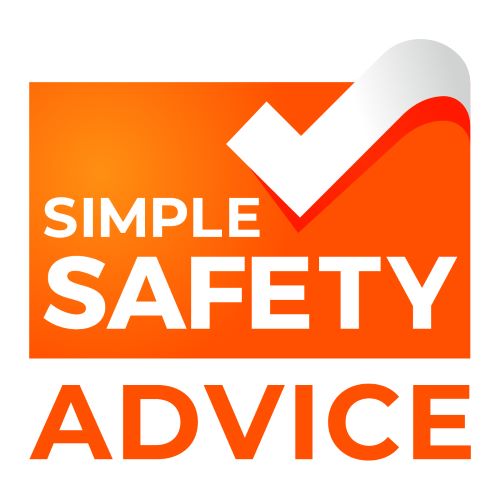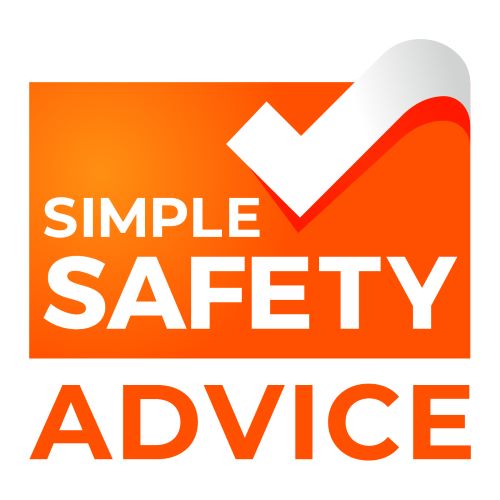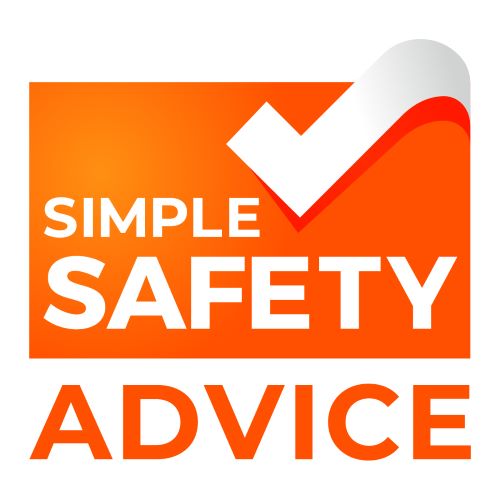Title Page
-
Facility
-
Address
-
Contact/Title
-
Phone
-
Email
-
Current EHS Facility Representative
-
SIC/NAICS
-
Description of Operations
-
Assessed by
-
Date
Management Systems
Policies & Procedures
-
Does the organization have required documented policies and procedures for managing environmental, safety, and transportation compliance?
-
Does the organization have an EHS incentive program?
-
Does the organization have a formal disciplinary program?
Training
-
Does the organization have a formal, documented initial training program?
-
Does the organization have a formal, documented refresher training program?
-
Are training records organized and easily retrieved?
Incident Management
-
Does the organization have a documented incident management process?
-
Does the process include close call/near miss reporting?
-
Does the process clearly identify root causes of the incident?
-
Are corrective actions assigned, resolved, and documented to prevent incident reoccurrence?
-
Does the organization have a return-to-work program for injured team members?
Recordkeeping
-
Does the organization have more ten (10) team members?
-
Are OSHA 300/300A documents for the last three (3) years available?
-
Are EMR worksheets for the last three (3) years available?
Compliance
-
Has the organization been visited/inspected by a regulatory agency in the last three (3) years?
-
Has the organization received a notice of violation/citation from a regulatory agency in the last three (3) years?
Environmental
Air Pollution Control
-
Does the facility produce air emissions?
-
Emission Unit(s)
-
Control Equipment
-
Emission Point(s)
-
Are air emissions permitted?
-
Issuing Agency
-
Permit ID
-
Expiration Date
Emergency Planning & Community Right-To-Know
-
Does the facility store hazardous chemicals (>10,000 pounds) or extremely hazardous substances (>RQ)?
-
Has the facility previously filed a Tier II Report?
Spill Prevention
-
Does the facility store hazardous materials/waste and/or petroleum products?
-
Does the facility store more than 1,320 gallons of oil above ground in containers 55 gallons or larger?
-
Does the facility have a Spill Prevention Control & Countermeasure (SPCC) Plan?
-
Are materials/wastes stored within secondary containment?
-
Are spill response materials readily available?
Sanitary Wastewater
-
Does the facility discharge sanitary waste to an on-site septic system?
-
Is the discharge permitted?
-
Issuing Agency
-
Permit ID
-
Expiration Date
Industrial Wastewater
-
Does the facility discharge industrial wastewater?
-
Is the discharge permitted?
-
Issuing Agency
-
Permit ID
-
Expiration Date
Stormwater Management
-
Does the facility discharge stormwater?
-
Is the discharge permitted?
-
Issuing Agency
-
Permit ID
-
Expiration Date
-
Is the discharge exempt?
Waste Management
-
Does the facility generate solid waste?
-
Has all waste been appropriately characterized?
-
Does the facility recycle, where possible?
-
Does the facility generate hazardous waste?
-
Is waste appropriately stored, labeled & contained?
-
EPA Hazardous Waste Generator ID
-
Does the facility generate universal waste? (aerosol cans, batteries, lamps, mercury-containing equipment)
-
Is universal waste appropriately stored, labeled & contained?
-
Does the facility generate used oil?
-
Is used oil appropriately stored, labeled & contained?
PCBs & Other Toxic Substances
-
Does the facility have PCB transformers on-site?
-
Are PCB items marked with PCB labels?
Safety
Bloodborne Pathogens 29 CFR 1910.1030
-
Is there an occupational exposure to blood or other potentially infectious materials?
-
Does the organization have an Exposure Control Plan?
-
Does the organization provide Hepatitis B vaccinations to team members?
Control of Hazardous Energy (Lockout/tagout) 29 CFR 1910.147
-
Do team members perform repair and maintenance on equipment?
-
Does the facility have established energy control procedures?
Combustible Dust
-
Are combustible dust hazards present?
Electrical 29 CFR 1910.303
-
Are electrical hazards present?
-
Does the organization follow safety-related work practices?
-
Is electrical equipment free from recognized hazards?
Exit Routes & Emergency Planning 29 CFR 1910 Subpart E
Exit Routes 29 CFR 1910.35 & 1910.36
-
Is the number of exit routes adequate?
-
Do exit discharges lead directly outside or to a street, walkway, refuge area, public way, or open space with access to the outside?
-
Are exit doors unlocked?
Emergency Action Plans 29 CFR 1910.38
-
Does the organization have an emergency action plan?
-
Is the emergency action plan in writing and available for review? (required for more than 10 employees)
-
Does the plan include procedures for reporting an emergency, evacuation/shelter locations, operation of critical operations, employee accountability, rescue/medical duties, and employees designated for additional information?
-
Does the organization maintain an emergency alarm system?
Fire Prevention Plans 29 CFR 1910.39
-
Does the organization have an fire prevention plan?
-
Is the fire prevention plan in writing and available for review? (required for more than 10 employees)
Fire Protection 29 CFR 1910 Subpart L
Portable Fire Extinguishers 29 CFR 1910.157
-
Is the facility equipped with portable fire extinguishers?
-
Are portable fire extinguishers mounted, located, and identified so they are readily accessible to employees?
-
Are portable fire extinguishers selected and distributed based on the classes of anticipated workplace fires and on the size and degree of hazard which would affect their use?
-
Are portable fire extinguishers visually inspected monthly?
Automatic Sprinkler Systems 29 CFR 1910.159
-
Is the facility equipped with an automatic sprinkler system?
-
Is the system main drain flow test performed annually?
-
Is the inspector's test valve opened at least every two (2) years?
First Aid/CPR/AED 29 CFR 1910.151
-
Are team members trained and equipped to initiate first aid and/or life saving measures?
-
Are first aid supplies and/or AED units available for team member use?
-
Are supplies and equipment in satisfactory condition?
Hand & Portable Power Tools 29 CFR 1910.242
-
Do team members use hand & portable power tools?
-
Are tools and equipment in safe condition, including ones furnished by team members?
-
Is compressed air used for cleaning purposes? (If yes, must be reduced to less than 30 psi)
Hazardous Materials 29 CFR 1910 Subpart H
-
Does the facility store or use hazardous materials?
Compressed Gases 29 CFR 1910.101
-
Does the facility utilize compressed gases?
-
Are compressed gas cylinders in a safe condition (storage, usage)?
-
Can cylinders be visually inspected?
-
Are flammable and oxygen cylinders separated by 20' feet?
Flammable Liquids 29 CFR 1910.106
-
Does the facility use/store flammable liquids?
-
Are materials stored in fire-resistant cabinets?
-
Are cabinets limited to <60 gallons of Category 1, 2, or 3 flammable liquids or <120 gallons of Category 4?
-
Do portable containers (<5 gallons) have a flash-arresting screen, spring-closing lid, and spout cover?
Spray Finishing using Flammable & Combustible Materials 29 CFR 1910.107
-
Does the facility spray finish using flammable & combustible materials? 29 CFR 1910.107
-
Is there a designated spray booth?
-
Are filter pads/rolls disposed of in an approved manner?
Hazard Communication 29 CFR 1910.1200
-
Does the organization have an inventory of hazardous chemicals?
-
Does the organization have a written hazard communication program?
-
Does the program include a provision for labeling?
-
Does the program include a provision for maintaining safety data sheets (SDSs)?
-
Does the program include a provision for team member training?
Machine Guarding 29 CFR 1910.212
-
Does the organization operate machines with potential hazards? (point of operation, ingoing nip points, rotating parts, flying chips, sparks).
-
Are machines equipped with guarding to prevent injuries? (barrier guards, two-hand tripping devices, electronic safety devices)
-
Are machines designed for a fixed location securely anchored to prevent walking or moving?
Noise 29 CFR 1910.95
-
Are noise hazards present?
-
Has a noise assessment been performed?
-
Is a hearing conservation program in place?
-
Is hearing protection provided and utilized?
Overhead & Gantry Cranes 29 CFR 1910.179
-
Does the facility operate overhead cranes and/or hoists?
-
Is the equipment inspected frequently? (Daily to monthly)
-
Is the equipment inspected periodically? (1-12 months)
-
Is the rated load of each crane plainly marked on each side of the crane & legible from the ground or floor?
Personal Protective Equipment 29 CFR Subpart I
-
Has the organization performed a workplace hazard assessment?
Eye & Face 29 CFR 1910.133
-
Do eye/face hazards exist? (flying particles, molten metal, liquid chemicals, corrosives, potentially injurious light radiation)
-
Is hazard-specific eye/face protection provided and utilized?
-
Are there options for prescription eye wear?
Respiratory Protection 29 CFR 1910.134
-
Is there a potential for respiratory hazards? (harmful dusts, fogs, fumes, mists, gases, smokes, sprays, vapors)
-
Is hazard-specific respiratory protection equipment provided and utilized?
-
Are affected team members medically cleared and fit tested?
Head Protection 29 CFR 1910.135
-
Is there a potential for injury to the head from falling objects or strikes?
-
Are hazard-specific protective helmets provided and utilized?
Foot Protection 29 CFR 1910.136
-
Is there a potential for foot injuries? (falling or rolling objects, or objects piercing the sole)
-
Is hazard-specific protective footwear provided and utilized?
Hand Protection 29 CFR 1910.138
-
Is there a potential for hand injuries? (skin absorption, severe cuts/lacerations, abrasions, punctures, chemical/thermal burns, temperature extremes)
-
Is hazard-specific hand protection provided and utilized?
Personal Fall Protection Systems 29 CFR 1910.140
-
Is there a potential for injuries from a fall?
-
Is hazard-specific fall protection equipment provided and utilized?
-
Is fall protection equipment inspected?
Permit-Required Confined Space Entry 29 CFR 1910.146
-
Does the organization have confined spaces?
-
Are confined spaces clearly identified?
-
Are team members authorized to enter confined spaces?
-
Is there a confined space entry permit/pre-entry checklist?
-
Is there a procedure for performing atmospheric testing?
-
Is there a procedure for responding to emergencies?
Powered Industrial Trucks/Forklifts 29 CFR 1910.178
-
Does the organization operate powered industrial trucks?
-
Are units appropriate for the environments in which they operate?
-
Are units equipped with the necessary safety guards and equipment?
-
Are units inspected and maintained as required?
Walking & Working Surfaces 29 CFR 1910 Subpart D
-
Are all places of employment, passageways, storerooms, service rooms, and walking-working surfaces kept clean, orderly, and sanitary?
-
Are walking-working surfaces designed to support the maximum intended load?
-
Is there sufficient and safe means of access and egress to/from walking-working surfaces?
Ladders 29 CFR 1910.23
-
Are portable ladders in a safe condition and used as designed?
-
Are fixed ladders in a safe condition and used as designed?
-
Are mobile ladder stands in a safe condition and used as designed?
Stairways 29 CFR 1910.25
-
Are stairways in a safe condition and protected as required (handrails, stair rails, guardrails)?
Dockboards 29 CFR 1910.26
-
Are dockboards capable of supporting the maximum intended load?
-
Are dockboards put into service after 01/17/2017, designed, constructed, and maintained to prevent transfer vehicles from running off the edge?
Fall Protection & Falling Object Protection 29 CFR 1910.29
-
Are employees protected by a guardrail, safety net, or personal fall protection system from a four (4) foot fall?
-
Are guardrail top rails 42" (+/- 3") above the surface?
-
Are guardrail mid rails 21" above the surface?
-
Are toeboards in place to protect from falling objects?
Welding, Cutting & Hot Work 29 CFR Subpart Q
-
Are there welding, cutting, and hot work hazards present?
-
Are designated areas free of combustibles (35 feet) or otherwise protected by flameproof covers, shields, or barriers?
-
Is appropriate personal protective equipment (eye/face, hand, clothing) provided and utilized?
-
Is ventilation provided for general welding and cutting?
-
Are oxygen cylinders separated from fuel-gas cylinders or combustibles by 20' or a 5' high non-combustible barrier (>0.5 hour fire-resistance rating?
Working Alone
-
Are team members required to work alone?
-
Does the organization have a written program for working alone?
-
Does the organization have a system for monitoring lone team members?
Motor Carrier
Federal Motor Carrier Safety Regulations 49 CFR Part 390
-
Is the operation subject to the requirements of Federal Motor Carrier Safety Administration (FMCSA)?
-
US DOT Number
-
Does the carrier have an accident register for the past three (3) years?
-
Are self-propelled CMVs properly marked?
-
Does the carrier have a GPS tracking system?
Drug & Alcohol 49 CFR Part 40
-
Does the carrier have a drug & alcohol program?
Qualifications of Drivers 49 CFR Part 391
Initial Driver Qualification Documents
-
Driver's Application of Employment 49 CFR 391.21
-
Driver's Road Test Certificate or Equivalent 49 CFR 391.31(e)
-
Inquiry to Previous Employers: Safety Performance History Record Request 49 CFR 391.23(a)(1) and (b)
-
Safety Performance History Records: Driver Correction or Rebuttal (if applicable) 49 CFR 391.23(i)(2) & (i)(3)
-
Inquiry To State Agencies for 3-Year Driving Record 49 CFR 391.23(a)(1)and(b)
-
Pre-Employment Drug and Alcohol Documents 49 CFR 40.25(j); 49 CFR 382.301
-
Entry-Level Driver Training Certificate 49 CFR 380.509(b)
Ongoing Updates
-
Inquiry To State Agencies for Driving Record – Annual 49 CFR 391.25 (a) & (c)
-
Review of Driving Record – Annual 49 CFR 391.25 (c) (2)
-
Medical Examination Report and Medical Examiner’s Certificate 49 CFR 391.43
-
Employer note verifying that medical examiner is listed on National Registry of Certified Medical Examiners — Non-CDL drivers: 49 CFR 391.51(b)(9)(i)); CDL drivers: 49 CFR 391.51(b)(9)(ii))
Hours of Service of Drivers 49 CFR Part 395
-
Does the carrier have a process to monitor hours of service?
-
Are records retained for a period of six (6) months?
Inspection, Repair, & Maintenance 49 CFR Part 396
-
Does the carrier have an inspection, repair, & maintenance program?
-
Are records retained for a period of one (1) year & for six (6) months after the vehicle leaves the carrier's control?
Summary
-
undefined












